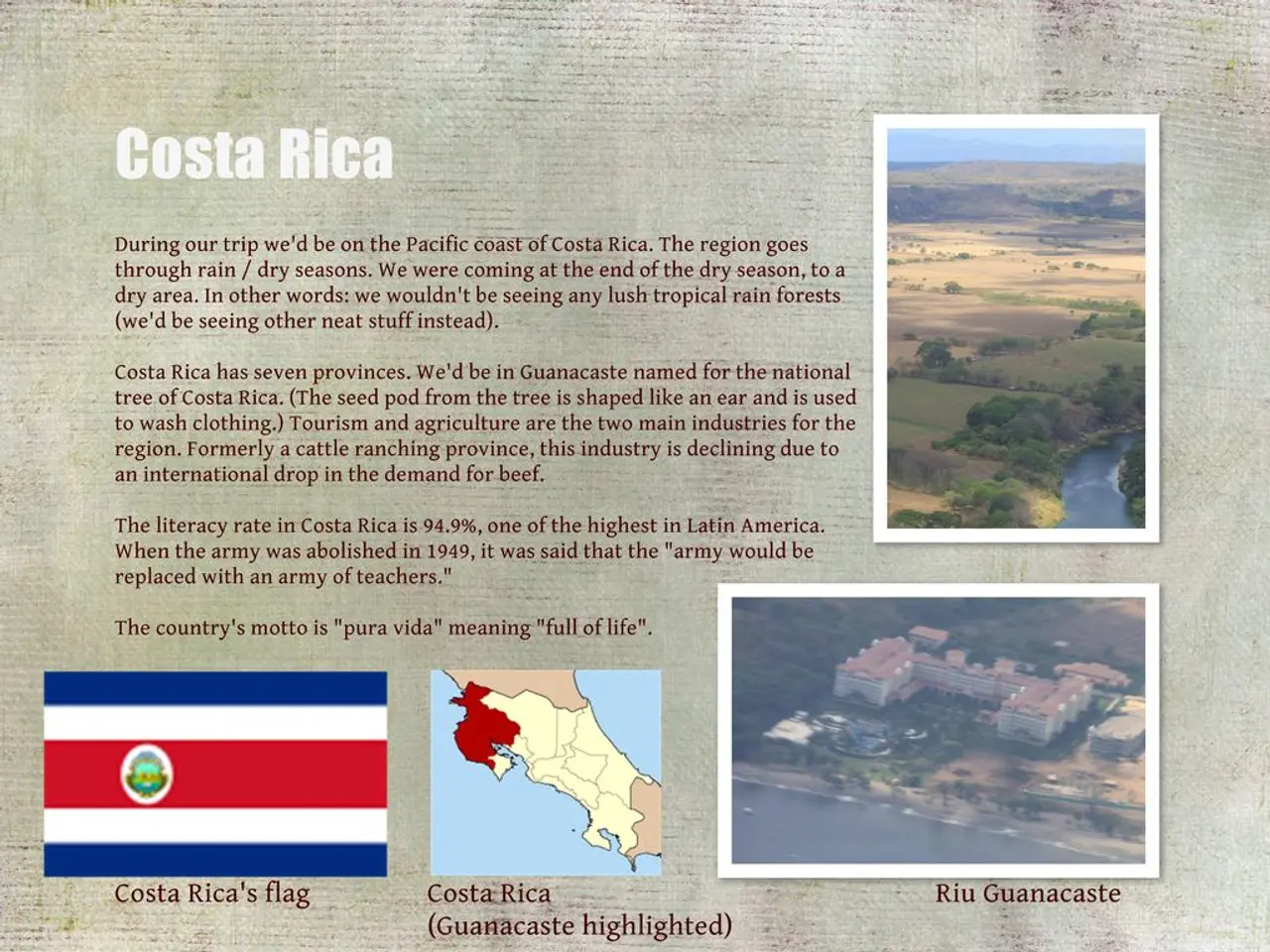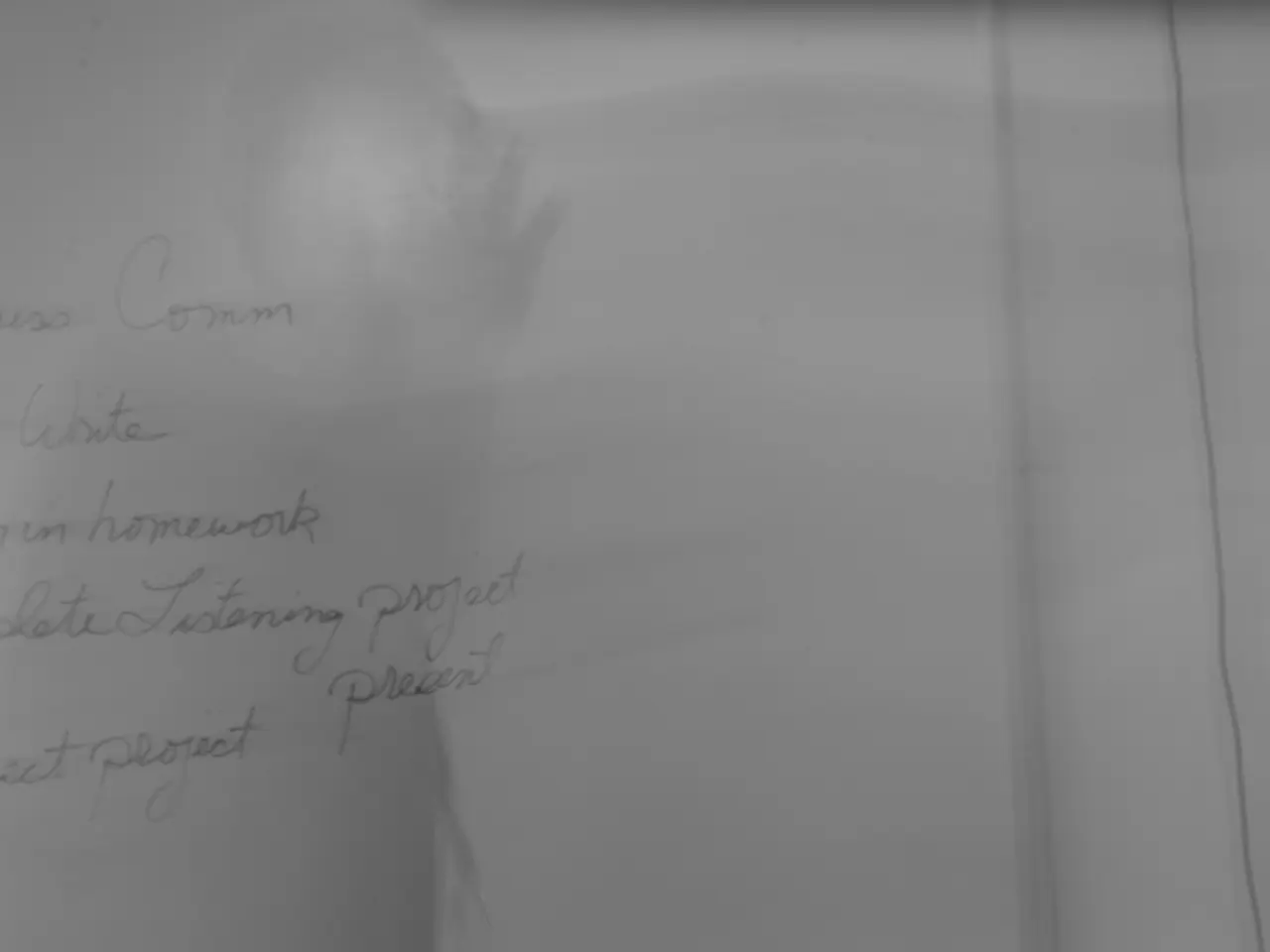Parliament in El Salvador endorses changes enabling Bukele to run for unlimited terms
In a move that has sparked controversy and divided public opinion, El Salvador's National Assembly approved constitutional changes last Thursday, allowing President Nayib Bukele to run for unlimited reelections and extending presidential terms from five to six years [1][2][4].
The reforms, proposed by lawmaker Ana Figueroa from the New Ideas party, also remove the requirement for second-round runoff elections. This swift passage, with little debate, has been met with a sharp divide in public reaction.
Bukele remains highly popular due to his tough anti-gang policies, and his party enjoys a significant legislative majority. Supporters argue that these reforms empower voters to decide how long to keep a president in office [2].
However, critics—including opposition lawmakers, human rights groups, and international observers—warn that these changes severely weaken democratic institutions by centralizing power and risking authoritarian rule. Opposition politicians have stated that "democracy has died" in El Salvador, framing the reforms as a path toward one-man dominance [1][2].
The reforms were passed despite constitutional prohibitions and amid concerns over the independence of the judiciary, which has been perceived as compliant with Bukele’s agenda [2]. The Supreme Court justices selected by Bukele's party ruled in 2021 that reelection was allowed [4].
Bukele, known for labeling himself as "the world's coolest dictator," has found success with his security and political strategies, inspiring imitators in the region who seek to replicate his style. However, the growing concern about corruption and clientelism due to the indefinite reelection of the president has been noted by Marcela Villatoro [3].
Suecy Callejas, the assembly's vice president, stated that power has returned to the Salvadoran people. Meanwhile, Marcela Villatoro of the Nationalist Republican Alliance (Arena) expressed her concern, stating, "Democracy in El Salvador has died!" in response to the constitutional changes [1][3].
As of now, President Bukele has not commented on the constitutional changes. Federal lawmakers and mayors in El Salvador can already seek reelection as many times as they want. The changes have raised serious alarms internationally and among opposition forces about the erosion of democratic checks and balances in El Salvador [1][2].
[1] https://www.reuters.com/world/americas/el-salvador-lawmakers-approve-constitutional-changes-allowing-bukele-run-unlimited-2023-05-04/ [2] https://www.bbc.com/news/world-latin-america-64943131 [3] https://www.aljazeera.com/news/2023/5/5/el-salvador-lawmakers-approve-constitutional-changes-to-allow-bukele-to-run-for-unlimited-terms [4] https://www.washingtonpost.com/world/the_americas/el-salvador-constitution-bukele-reelection/2023/05/04/2860e2f2-5f80-11ed-881f-28e0d38b3c1d_story.html
The debate surrounding the policy-and-legislation changes in El Salvador's politics has intensified, particularly with the approval of constitutional amendments allowing President Nayib Bukele unlimited reelections and extending presidential terms [1][2][4]. This move has been criticized as a severe weakening of democratic institutions, risking authoritarian rule [1][2].
The passage of these reforms, without comprehensive debate, has stirred up general-news headlines, with opposition politicians and human rights groups voicing their concerns about eroding democratic checks and balances in El Salvador [1][2].






